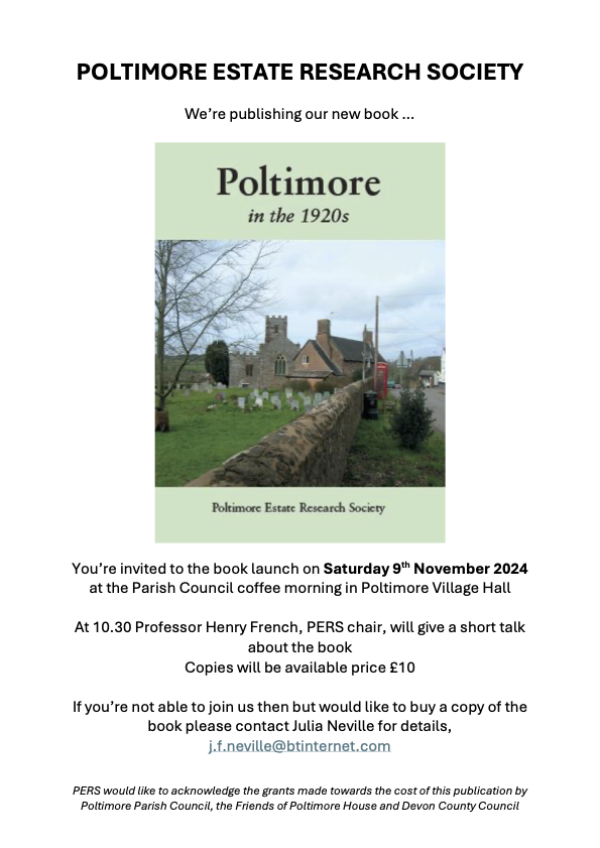Sign up to our newletter to get regular village updates
Sign up nowSign up to our newletter to get regular village updates
Sign up nowPoltimore in the 1920s
Many of you will be familiar with the book Poltimore - A Village in Transition, 1911-1921, produced by the Poltimore Estate Research Society (PERS). This team has now completed their research into the 1920s!
The 1920s was meant to be a time of the ‘land fit for heros’ after WW1 but in Poltimore it coincided with the attempted sale by the Bampflydes of the whole of their Poltimore Estate in 1921. The story of the 1920s that we want to discover is how the village then reshaped itself both economically and socially after it had lost its Patron.
Poltimore House became a girls College from 1923 (until 1939) and the Headmistress, a Miss Wontner, perhaps wanting the acquire the 'status' of lady of the manor, became a significant employer. She also helped with charitable causes in the village but her bankruptcy in 1926 meant that though she remained headmistress she was unable to pursue this role.
The local school played its part, but with a declining enrolment, it was unable to retain its senior staff. The Rector and his wife provided some continuity throughout the 1920s. Many of the tenanted farms were bought by the incumbent tenants on favourable terms from Lord Poltimore and having by such means established long term security, became significant influences in the village.
The 1920s were also a period of profound social change and the first council houses were built in 1927 into which local families moved. Although agricultural employment of various kinds was still significant, there was an increasing trend towards residents living in but working outside the village. Also, although there was some continuity of the same families living in the village throughout the 1920s, there was an increasing trend of incomers from elsewhere in and outside Devon.
So how did all these influences contribute to re-shaping Poltimore? As noted in the accompanying poster, we would be delighted to meet you in the Poltimore Village Hall on 9th November, when Professor Henry Smith will provide a brief summary of our new book Poltimore in the 1920s copies of which will be for sale.
